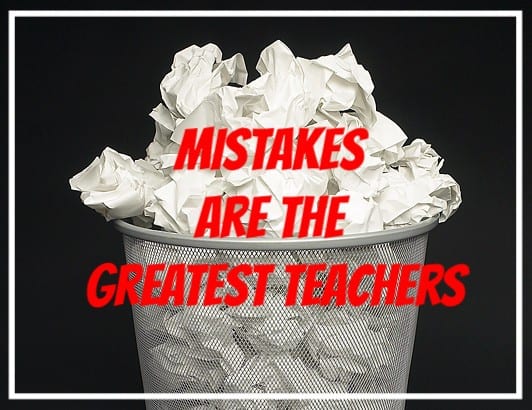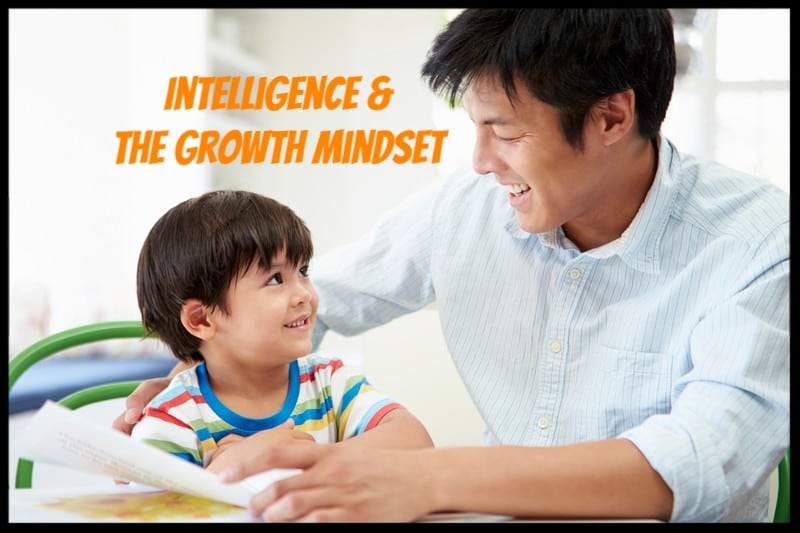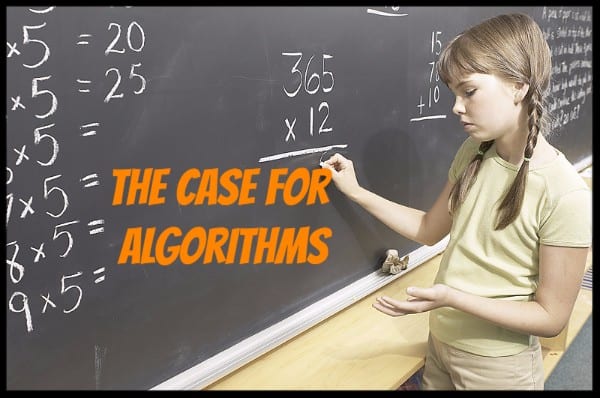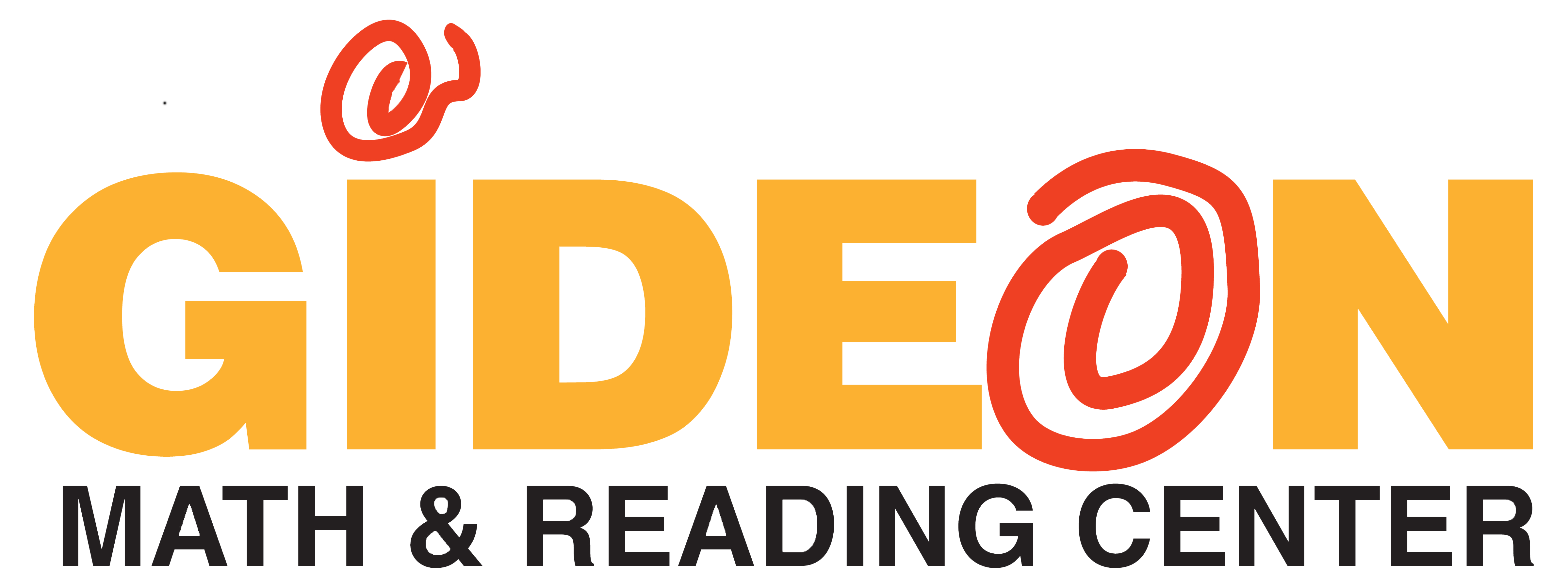
Independent Learners, Math, Young Learners
Intelligence is the measure of the brain’s ability to acquire and apply certain knowledge and skills. We know the human brain can grow, change, and even rewire itself to meet new standards. This ability of the brain is called brain plasticity. By correcting mistakes, our knowledge is able to extend further than previous limits. At Gideon, we highly value mistakes (and the correcting of!) to help students persevere through challenges and think like champions. We see brain plasticity in action each day!
Success, in many areas, depends on (more…)

Independent Learners, Math, Reading, Young Learners
Many people wrongly believe intelligence is fixed at birth. Many factors will affect school performance such as stable family life, proper nutrition, and parent involvement in studies, but genetics is usually NOT one of them.
This article at Quartz written by 2 professors focuses on the math ability aspect of the intelligence is genetic theory and how it becomes a “self-fulfilling prophecy.” After working with math students through teaching and tutoring for years, they discovered this pattern:
- Different kids with different levels of preparation come into a math class. Some of these kids have parents who have drilled them on math from a young age, while others never had that kind of parental input.
- On the first few tests, the well-prepared kids get perfect scores, while the unprepared kids get only what they could figure out by winging it—maybe 80 or 85%, a solid B.
- The unprepared kids, not realizing that the top scorers were well-prepared, assume that genetic ability was what determined the performance differences. Deciding that they “just aren’t math people,” they don’t try hard in future classes, and fall further behind.
- The well-prepared kids, not realizing that the B students were simply unprepared, assume that they are “math people,” and work hard in the future, cementing their advantage.
What the difference they see? The preparation! At Gideon, we completely agree. You can get ahead early or catch up later, but you have to put in the work. The addition facts don’t memorize themselves. Starting with struggling older students is harder as you have to change their attitude into believing they can succeed and they have more work to cover to catch up, BUT it is very possible and we do it every day. You simply have to put in the time.
This doesn’t just apply to math but to all areas. The article continues to discuss how many studies have been done showing how attitude is critical in high achievers.
Psychologists Lisa Blackwell, Kali Trzesniewski, and Carol Dweck presented these alternatives to determine people’s beliefs about intelligence:
- A-You have a certain amount of intelligence, and you really can’t do much to change it. OR B-You can always greatly change how intelligent you are.
They found that students who agreed that “You can always greatly change how intelligent you are” got higher grades. But as Richard Nisbett recounts in his book Intelligence and How to Get It, they did something even more remarkable:
“Dweck and her colleagues then tried to convince a group of poor minority junior high school students that intelligence is highly malleable and can be developed by hard work…that learning changes the brain by forming new…connections and that students are in charge of this change process.”
The results? Convincing students that they could make themselves smarter by hard work led them to work harder and get higher grades. The intervention had the biggest effect for students who started out believing intelligence was genetic. (A control group, who were taught how memory works, showed no such gains.)
But improving grades was not the most dramatic effect, “Dweck reported that some of her tough junior high school boys were reduced to tears by the news that their intelligence was substantially under their control.” It is no picnic going through life believing you were born dumb—and are doomed to stay that way.
Americans don’t like being compared to Asians – especially in math, but the reality is our views tend to be very different with education. With their longer school years and attitudes of “persistence in the face of failure”, they continue towards their goals, while some Americans argue we don’t need Algebra I anymore. Or if a child is struggling to read, baseball practice should not come first.
One way to help Americans excel at math is to copy the approach of the Japanese, Chinese, and Koreans. In Intelligence and How to Get It, Nisbett describes how the educational systems of East Asian countries focus more on hard work than on inborn talent:
1. “Children in Japan go to school about 240 days a year, whereas children in the United States go to school about 180 days a year.”
2. “Japanese high school students of the 1980s studied 3 ½ hours a day, and that number is likely to be, if anything, higher today.”
3. “[The inhabitants of Japan and Korea] do not need to read this book to find out that intelligence and intellectual accomplishment are highly malleable. Confucius set that matter straight twenty-five hundred years ago.”
4. “When they do badly at something, [Japanese, Koreans, etc.] respond by working harder at it.”
5. “Persistence in the face of failure is very much part of the Asian tradition of self-improvement. And [people in those countries] are accustomed to criticism in the service of self-improvement in situations where Westerners avoid it or resent it.”
We certainly don’t want America’s education system to copy everything Japan does (and we remain agnostic regarding the wisdom of Confucius). But it seems to us that an emphasis on hard work is a hallmark not just of modern East Asia, but of America’s past as well. In returning to an emphasis on effort, America would be returning to its roots, not just copying from successful foreigners.
Read the rest of this article HERE.
While some aspects of an Asian culture of education such as daily routines of nothing but school, homework, and private tutoring should be tempered with downtime, hobbies, and play, there are lessons to be learned from their success. We should not simply excuse some kids out of basic subjects if they struggle.
At Gideon struggling indicates a weak foundation rather than an innate lack of ability. We find the cracks and fill them! A great example of this model at work is with one of our gold stars, Avery. She was struggling with math in kindergarten. Her parents knew that with some extra practice she could improve. To say she’s improved is an understatement. In just 5 years through daily practice of 20-30 minutes with Gideon, she has excelled all the way to pre-algebra as a 5th grader which is typically a 7th Honors or 8th grade subject and continues to do well. She put in the time and effort and has received her reward! Watch her interview below.
Independent Learners, Math
For more: go HERE to the Ed.Ted.com site to answer questions and get more resources about this lesson such as more history about Napier shown in the video below. Some insight into the Lattice method is shown as well.

Independent Learners, Math
In THIS article, “The Faulty Logic of The Math Wars” in the New York Times, Alice Crary, a philosophy professor, and W. Stephen Wilson, a math professor argue that the ideals that math reformists claim to be working towards when removing standard algorithms (such as long division) from elementary math textbooks are actually being moved away from if the thought processes behind the algorithms are analyzed differently.
Today the emphasis of most math instruction is on — to use the new lingo — numerical reasoning. This is in contrast with a more traditional focus on understanding and mastery of the most efficient mathematical algorithms. …
The reformist’s case rests on an understanding of the capacities valued by mathematicians as merely mechanical skills that require no true thought. The idea is that when we apply standard algorithms we are exploiting ‘inner mechanisms’ that enable us to simply churn out correct results. We are thus at bottom doing nothing more than serving as sorts of “human calculators.” …
This mechanical image of calculation is the target of a number of philosophical critiques. … Wittgenstein suggests that analogies between mathematical computations and mechanical processes only seem appealing if we overlook the fact that real machines have parts that bend and melt and are invariably subject to breakdown. … That is, it seems clear that, in order to be justified in believing that I have mastered an algorithm, I require a type of mental activity that isn’t simply causally generated. Far from being genuinely mechanical, such calculations involve a distinctive kind of thought.
That the use of standard algorithms isn’t merely mechanical is not by itself a reason to teach them. It is important to teach them because, as we already noted, they are also the most elegant and powerful methods for specific operations. This means that they are our best representations of connections among mathematical concepts. Math instruction that does not teach both that these algorithms work and why they do is denying students insight into the very discipline it is supposed to be about.
While reformists claim the need to change traditional math is based on the need to promote independent thought, the authors draw parallels to other subjects which are not being argued (usually) to start requiring creative thought in the early grades.
To begin with, it is true that algorithm-based math is not creative reasoning. Yet the same is true of many disciplines that have good claims to be taught in our schools. Children need to master bodies of fact, and not merely reason independently, in, for instance, biology and history. Does it follow that in offering these subjects schools are stunting their students’ growth and preventing them from thinking for themselves?
Further, the reasoning the reformists so desire needs to be built upon a solid foundation of “bodies of fact” such as parts of cell, the dates of wars fought in America, and the basic algorithms of math. If you do not know the basics, it will be difficult for someone to think deeply about more difficult topics within a subject. No one is arguing that the why should not be taught; let’s just not do a disservice to our students by not showing them the best way to do something. In Gideon we always aim to teach the why AND the best. In higher addition for example, visual movement exercises among place value (such as changing 12 ones into 1 ten and 2 ones) are used before carrying or regrouping, but the basic algorithm of putting a 1 above the tens column to aid in speedy addition is practiced until mastered.
Even if we sympathize with progressivists in wanting schools to foster independence of mind, we shouldn’t assume that it is obvious how best to do this. Original thought ranges over many different domains, and it imposes divergent demands as it does so. Just as there is good reason to believe that in biology and history such thought requires significant factual knowledge, there is good reason to believe that in mathematics it requires understanding of and facility with the standard algorithms.
Read the entire article HERE.
This article received a lot of comments such as these below:
John, an outraged mathematician from NY remarked:
How would the reform template work if applied to learning a musical instrument? What would the result be if beginning guitar students were not taught the basic chords? A lot of wasted time and a cacophony. Creativity can and should come later, once the basics are mastered. The same is true in mathematics.
(Another) John, a college professor from VA said:
I am … a multilevel modeler — aka, fancy statistics. … it would have been impossible for me achieve what I have without their instruction in what I am now being told was a method that limited my creativity.
The ability to perform basic arithmetic operations without thinking too much about them frees me … to think more about more complex mathematical operations/concepts.
Occasionally, I have students who have difficulty with simple arithmetic operations. These students also have difficulty understanding how to set up the models that they need to analyze their data and perhaps more importantly, they have difficulty interpreting the results.
Basic arithmetic operations are the simple sentences of mathematics and by extension, of disciplines such as statistics that rely on arithmetic operations. If you do not know how to construct a simple sentence, paragraphs would seem to be out of reach.
Read the rest of the comments HERE by scrolling the bottom of the page.
For more thoughts on this article and subject go HERE to Joanne Jacob’s blog where she links up with articles from Barry Garelick who discusses that reformists claim to be teaching the superior ‘understanding’ instead of a traditionalist’s mere ‘skills’:
. . . The reform approach to “understanding” is teaching small children never to trust the math, unless you can visualize why it works. If you can’t “visualize” it, you can’t explain it. And if you can’t explain it, then you don’t “understand” it.
Independent Learners, Young Learners
This is a heart warming article from washingtonpost.com about how one girl is so grateful for her father’s involvement and interest in her education as it really made a difference.
Here’s a sweet Fathers Day piece by Santa Clara University student Nicole Pal about how her father, Allan Pal, influenced her education. She grew up in San Jose, California, and will graduate in 2014 with a degree in web design and computer engineering. This summer she is building a solar-powered home “Radiant House” for the Department of Energy’s Solar Decathlon competition.
Here are some key points I pulled from the article and advise our Gideon parents to do.
Believe in your children! Even when they struggle, be patient and assume they can overcome it.
The most precious gifts I received as a child were a white board and a book about bridges. I never questioned whether I could succeed as an engineer, and as I head into my final year of engineering school at Santa Clara University, I realize my dad played a huge role.
While some young girls might give up on a math question if they didn’t know the answer, my father was patient enough to walk through a problem with me- not just walk me through it. He let me re-work problems until the dry-erase marker was whittled to a stub. I was never tempted to smile, nod and simply pretend I understood. I always keep the whiteboard in mind when tutoring younger girls in algebra.
I can still remember something my father said to me once after graduating college. We had a new employee still in high school who was very self assured and capable. He said, “She reminds me of you. She can do anything she wants.” While I knew my parents thought I was smart and wouldn’t allow me to give up during difficult projects when I felt like quitting, this statement has stayed with me and given me confidence on days I needed it. Parents, your words have a impact. Make them inspiring!
Involve them in the household repairs, projects, and everyday calculations like cooking.
My father, who is an engineer with a microprocessing company, encouraged me to be hands on in whatever project he was working on. I remember learning how to use a saw and gleefully shouting “timber” as 2x4s hit the floor. … I’m passionate about engineering now because it helps me make sense of the world. By letting me problem-solve and get hands on with projects as a young child, I’ve learned how to make the world compute.
This helps the child see the real world application of all the things he is learning. It’s one thing to do a word problem about a recipe and another to cook it correctly yourself.
Develop a strong work ethic within their character.
One of the biggest ways my father nurtured my advancement in engineering was helping me find my passion and encouraging me to put in the hard work.
A strong work ethic will carry them through the times when things aren’t easy and fun. While doing another supplemental math program, I would whine and complain that none of my friends had to do this. I would try any way possible to get out of doing it most days. He would simply ignore my frustration and tell me to try again.
Even while doing their dream job, there will be times they have to do tasks or deal with problems they would rather not. Learning to deal with hard work early helps them keep going later in life. Grit can make a big difference in the path to success.
Read the entire article HERE.



